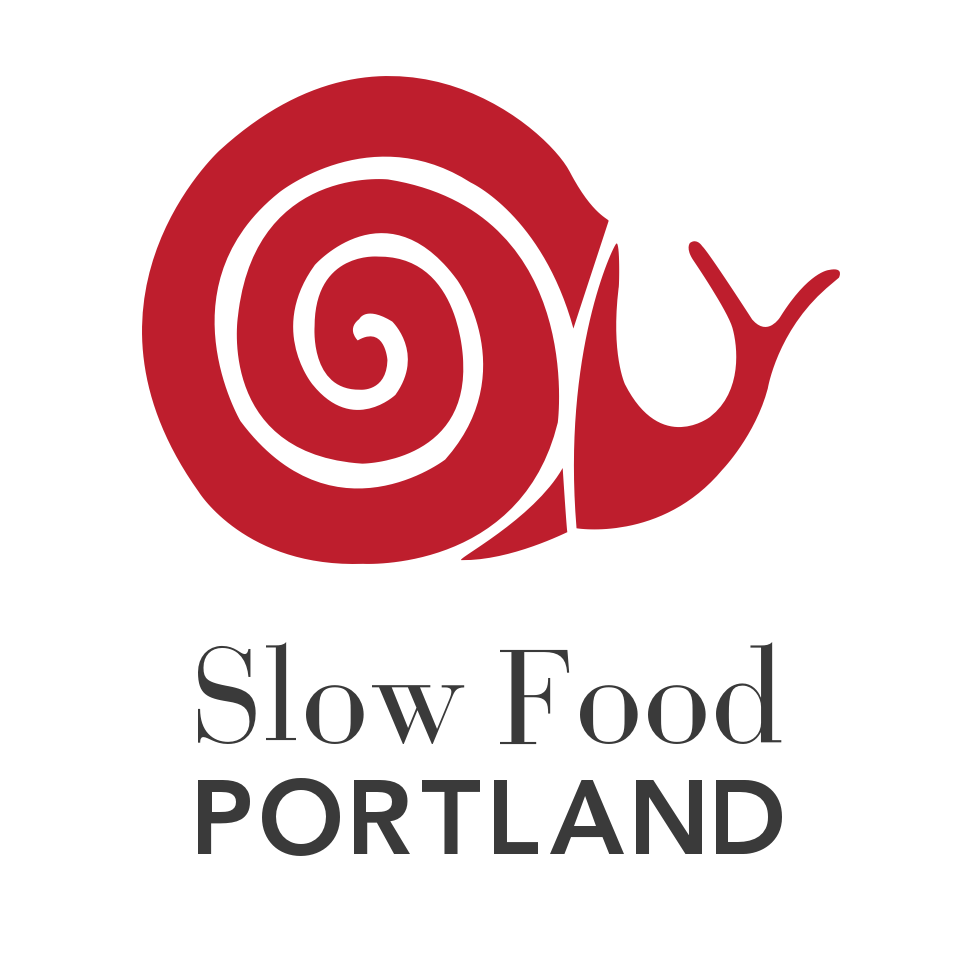Food Justice: #ChooseToChallenge
By Sruthi Eapen, Research and Advocacy Intern at Slow Food Portland
“Raising awareness and challenging aspects of inequality can spark discussions that lead to change.”
The theme of the 2021 International Women’s Day (March 8th, 2021) is #ChooseToChallenge, encouraging people to call out gender inequality to promote inclusivity. Raising awareness and challenging aspects of inequality can spark discussions that lead to change. This change can create a more inclusive and equal future for all. In this blog post, I am calling out some of the gender inequities within food systems, which spans from food production to food preparation.
Worldwide, women play a large role in food systems, producing 60-80% of food in the Global South1. And, according to the Pew Research Center, in US family households, 80% of women still take on the primary role in cooking and food purchasing2. One might hope that this translates to women having proportionally increased representation and power in food systems such as agriculture and the food industry, but, unfortunately, this is not the case. Within food systems, women still have less access to land resources, are paid less than men, and are disproportionately underrepresented in positions of power.
Part of the issue is at the supply level due to the physical space which food production demands. Due to patriarchal societal values and legislature in the past and the present, women are denied equal rights to land access and ownership. According to the World Economic Forum, women only own less than 20% of Earth’s land, which limits the amount of land area where women can be primary landowners of agriculture3. Despite women making up a large proportion of the food production workforce, their leadership power is limited due to inequitable property ownership. Balancing ownership of land would not only promote independence and social mobility but would also be economically beneficial. In a study done by the United Nations Food and Agriculture Organization, equal access to resources would increase food production by 20-30%4.
Due to systemic injustices within food systems, women in this industry earn 40% less compared to men5. The effects of this wage gap are far-reaching. Lower wages can contribute to disproportionate poverty, which is important to consider given that a disproportionately large number of women and girls are chronically hungry worldwide1. This has further negative effects regarding health, educational opportunity, and social mobility.
Women are also disproportionately represented in professional food industry settings and positions of power at the food distribution and preparation levels of the food system. Among food and beverage manufacturers, women are underrepresented in senior-level positions6. Unconscious bias and systemic discrimination prevent upward mobility that would create a more inclusive work environment. This also extends to the food preparation level. According to Data USA, 77.6% of head chefs in professional kitchens are male7. Recognizing these inequalities is the first step in working to discover areas of unconscious bias and barriers that women are facing in this field. Gender diversity in senior-level positions creates a work environment that promotes inclusivity.
Celebrating International Women’s Day also involves recognizing the achievements of women worldwide. Many women worldwide are food activists and are working toward challenging inequity within food systems. Included below are resources that highlight the amazing work of women food activists. In a publication by WhyHunger titled “Through Her Eyes: The Struggle for Food Sovereignty,” stories from women in the food industry are showcased. A clear takeaway from this publication is that women must be a part of the conversation. WhyHunger writes,
“It is imperative, therefore, that women’s voices are at the center of the debate about how to dismantle the current food regime and replace it with food sovereignty and agroecology.1”
Working toward food justice and food sovereignty will require creating a more inclusive food system through gender diversity. The solution to addressing gender bias and inequality within food systems involves promoting the voices and opinions of women who work within the food system. As former supreme court justice, Ruth Bader Ginsburg said, ‘Women belong in all places where decisions are being made. It shouldn't be that women are the exception.”
To read more about women food activists:
Through Her Eyes: The Struggle for Food Sovereignty: https://whyhunger.org/category/publications/through-her-eyes/
Amazing Women Food Activists: https://foodtank.com/news/2020/03/20-heroines-revolutionizing-food-activism-to-improve-the-planet/
Bibliography
1WhyHunger. “Through Her Eyes: The Struggle for Food Sovereignty,” n.d. https://whyhunger.org/category/publications/through-her-eyes/.
2Schaeffer, Katherine. “Among U.S. Couples, Women Do More Cooking and Grocery Shopping than Men.” Pew Research Center (blog). Accessed March 1, 2021. https://www.pewresearch.org/fact-tank/2019/09/24/among-u-s-couples-women-do-more-cooking-and-grocery-shopping-than-men/.
3Villa, Monique. “Women Own Less than 20% of the World’s Land. It’s Time to Give Them Equal Property Rights.” World Economic Forum, 2017. https://www.weforum.org/agenda/2017/01/women-own-less-than-20-of-the-worlds-land-its-time-to-give-them-equal-property-rights/.
4Payne, Emily. “For a More Sustainable Food System, Women Are Key.” The Counter, June 22, 2018. https://thecounter.org/sustainable-food-system-women-nourished-planet/.
5Kruzic, Ahna. “Cultivating Gender Justice.” Food First Backgrounder 23, no. 1 (2017). https://foodfirst.org/wp-content/uploads/2017/03/GenderSpring2017_Final-1.pdf.
6Berry, Donna. “Women Underrepresented at Senior Levels of Food and Beverage Manufacturers.” Food Business News, 2020. https://www.foodbusinessnews.net/articles/15346-women-underrepresented-at-senior-levels-of-food-and-beverage-manufacturers.
7Chefs & Head Cooks | Data USA,” 2018. https://datausa.io/profile/soc/chefs-head-cooks#demographics.
